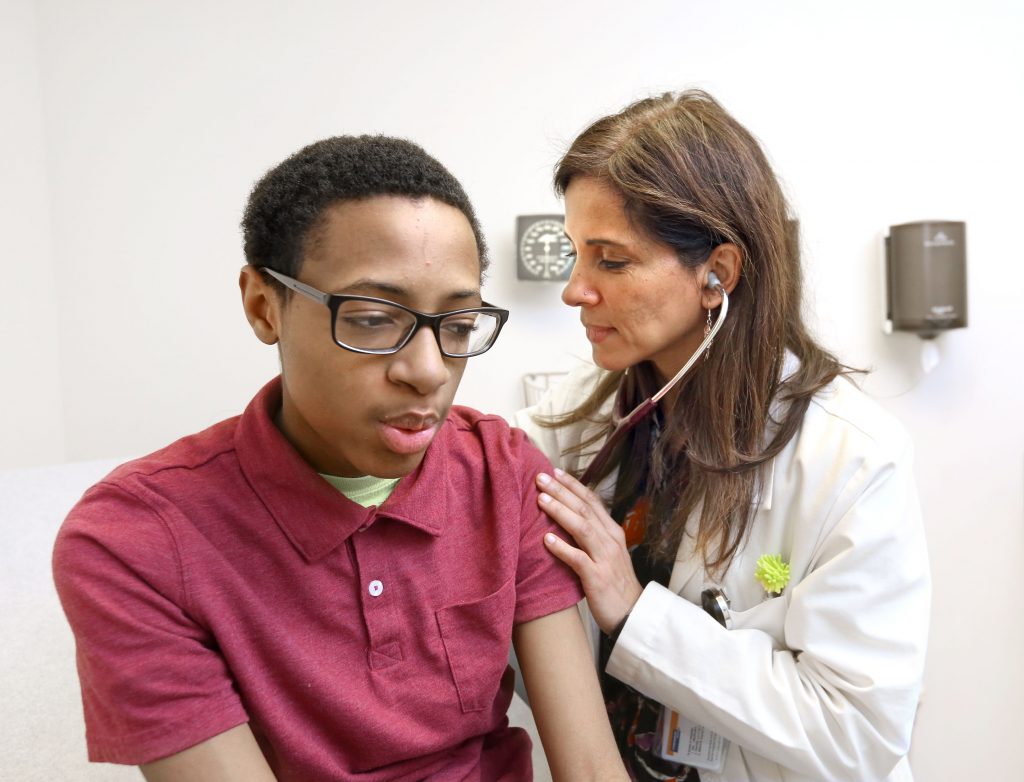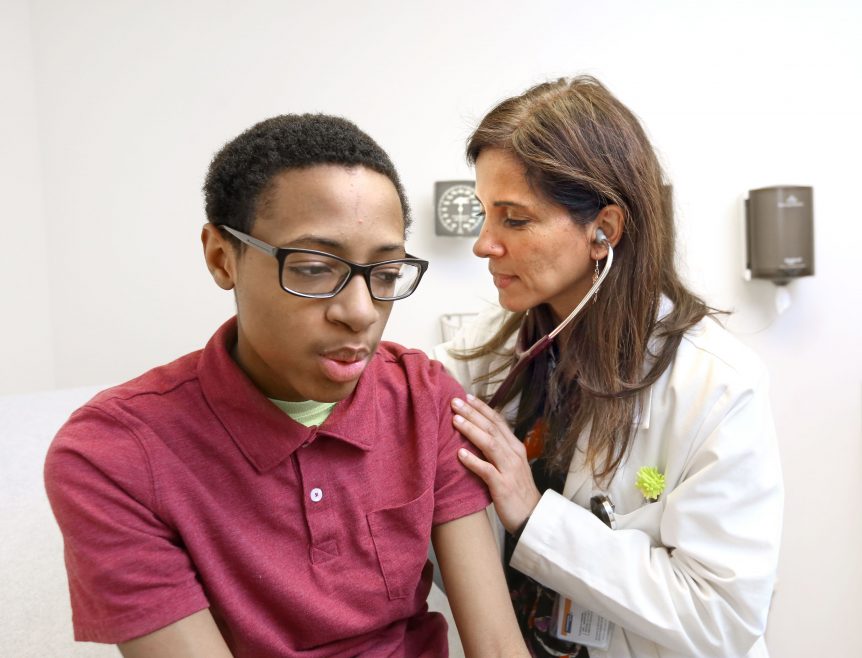CLEVELAND, OH | By Lydia Coutre’ | February 10, 2019
Original article can be found at: https://www.crainscleveland.com

Since their affiliation in late 2017, Circle Health and The Centers for Families and Children have been able to get more patients access to integrated care and to insurance coverage.
At the start of 2017, The Centers launched a new strategic plan, part of which included finding a partner to help improve the organization’s integrated care. While The Centers worked to support clients and help stabilize their mental health, it was the physical aspects of their health care that were often going unaddressed.
“We want to have a model that we can scale at all of our locations, and to do that, we really needed to join forces with a federally qualified health center,” said Elizabeth Newman, who serves as president and CEO of both The Centers and Circle Health (formerly known as The Free Clinic of Greater Cleveland). “It just so happened that at around that same time, Circle Health was also looking for a partner, and sort of, the stars aligned.”
They joined forces in November 2017. Though the two organizations effectively operate as one entity — with a shared leadership team and integrated operational and administrative infrastructure — they each maintained their distinct legal identities, in large part due to the fact that Circle Health’s status as a federally qualified health center meant it cannot merge with other organizations.
“It benefits both organizations,” said Marianella Napolitano, chief of health care programs. “We were able to provide additional behavioral health services for that entity, for Circle Health, and then we were also able to gain primary care as a result of that.”
In 2018, the consolidated financials for both organizations totaled $61.6 million in revenue. Together, they employ 600 people across 17 locations.
A little over a year into the affiliation, they report numbers that reflect improved access, added coverage and more integrated care for patients.
The Centers was able to help those served by Circle Health gain access to specialized and individual benefits counseling and case management services, resulting in a decrease of uninsured patients from 45% in 2017 to 29% in 2018 for Circle Health clients.
Together, they serve more than 15,000 people each year with health care services alone. In total, they serve more than 30,000 people across all service lines: health care, early learning and family services and workforce and workplace development. These other services are a key part of what The Centers does.
Newman said when she started speaking with Circle Health, she expected them to need behavioral health services for their clients, but just as critical were needs for workforce training.
“The more services that we can provide under one roof, the better it is for them,” Napolitano said. “So if you come in here to get your primary care visit, and then you can see your counselor and then you can see the dentist, and potentially if you are unemployed, right, your medical team can say, ‘Hey, we have a workforce development program that you could be potentially joining.’ So the comprehensiveness of all the different services was key.”
In the first year, the focus was on increasing access and coordinating care. While both of those efforts continue, entering year two of the affiliation, Newman said they’re examining specialty programs — such as Circle Health’s work supporting people living with HIV and its syringe exchange program — to see how they can support and strengthen these programs for people across the whole organization who may need that support.
“There’s a lot of opportunity there,” Newman said. “We’re just kind of exploring that right now, and we’ve already seen some good support and good growth in the last year. … How do we connect the dots so it will be meaningful for the people we serve and the community.”
In the past two years, The Centers has also been investing in increasing addiction and substance abuse services and in January launched a Medication-Assisted Treatment pilot that they hope to eventually replicate.
The affiliation provides an opportunity for the two to pursue a model with access to new types of funding and to begin to think about what’s possible if you can provide in one setting behavioral health care, primary care, dental care and an onsite pharmacy.
“Can we move the needle on the health outcomes for this population that has complex needs, and that, for whatever reason, has not been well served by more traditional systems, or is getting their care in the wrong setting?” Newman said.
Before the affiliation, Circle Health was providing behavioral health services to about 850 clients annually, but since the two have come together, Circle Health sees more than 5,000 people each year for behavioral health services, thanks to the strong behavioral health client base of The Centers.
Also before the affiliation, Circle Health provided primary care services to more than 4,000 people annually. An additional 600 individuals from The Centers have been able to access primary care as a result of the partnership — a number that continues growing as the organizations integrate care into additional sites.
Going forward, Newman said she’d like to see how The Centers and Circle Health can better connect with other organizations doing similar or complementary work.
“I think there’s opportunity here for us to continue to work with others across the community and develop those partnerships,” Newman said. “And we’re really excited to see what’s possible while we continue to work through getting on one system and trying to improve coordination of care and trying to increase capacity.”
Share this Post













